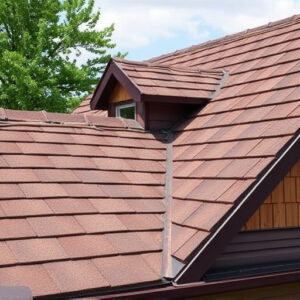Choosing insulated roofing materials significantly reduces utility bills by trapping heat in colder months and reflecting sunlight in warmer seasons. High-quality options like red clay tile roofs increase home resale value. Selecting insulated roofing is a smart, sustainable choice for optimizing energy performance, offering superior weather protection, durability, noise reduction, fire safety, green building practices, indoor air quality, low maintenance, and long-term financial benefits. Consider climate, type of roofing system, and consult professional estimates for informed decision-making.
“Insulated roofing offers a multitude of benefits, making it an increasingly popular choice among homeowners and builders alike. From energy efficiency that reduces utility costs to superior weather protection and enhanced durability, insulated roofs provide long-lasting value. This article explores these advantages in depth, delving into energy savings, noise reduction, fire safety, environmental friendliness, improved indoor air quality, low maintenance requirements, and the positive impact on property values. Additionally, we guide you through the crucial factors to consider when choosing the right roofing materials for your insulated roof.”
- Energy Efficiency: Save on Costs with Insulated Roofs
- Weather Protection: Why Insulation is Your Shield
- Durability Matters: Longevity of Insulated Roofing Materials
- Reducing Noise Pollution: Peaceful Spaces Above
- Fire Safety Features: The Role of Insulation
- Green Building: Eco-Friendly Benefits of Insulated Roofs
- Improved Indoor Air Quality: Breathable and Healthy
- Ease of Maintenance: Low-Maintenance Roofing Solutions
- Increased Home Value: Investing in Insulated Roofing
- Choosing Right: Factors to Consider for Your Roof's Insulation
Energy Efficiency: Save on Costs with Insulated Roofs
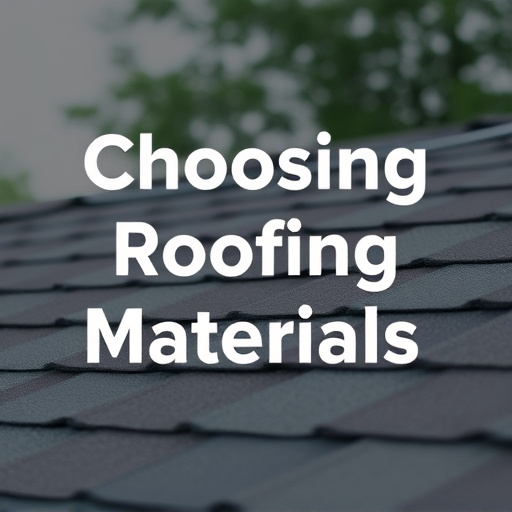
Choosing roofing materials that offer excellent energy efficiency can significantly impact your utility bills and contribute to a more sustainable home. Insulated roofs are designed to trap heat during colder months, keeping your living space cozy while reducing heating costs. Conversely, they reflect sunlight in warmer seasons, helping maintain a cooler interior and lowering cooling expenses. This dual functionality makes insulated roofing an attractive option for homeowners looking to optimize energy performance.
When considering your professional roofing estimate tips, opt for high-quality insulated materials that provide the best value. Durable options like red clay tile roofs, known for their longevity, can be a sound investment. By selecting insulated roofing, you not only enjoy immediate savings on energy costs but also potentially increase your home’s resale value in the long run, making it a smart choice for any property owner.
Weather Protection: Why Insulation is Your Shield
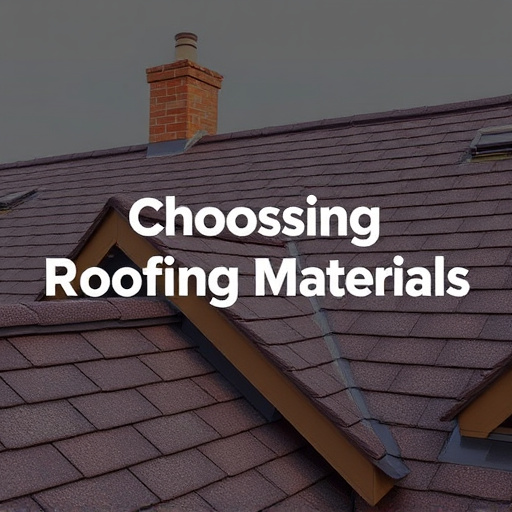
Insulation acts as a protective barrier for your roof, shielding it from the harsh elements of nature. When choosing roofing materials, opt for options that provide superior weather protection to ensure the longevity and integrity of your roof. In regions with extreme climates, insulation is more than just a comfort; it’s an essential defense mechanism against snow, ice, wind, and intense sunlight.
Compared to traditional flat roof materials, insulated roofing offers enhanced durability and energy efficiency. It serves as a crucial layer in green roofing options, helping regulate temperature and reducing the need for frequent tile roofing maintenance hacks. Moreover, when considering the slate roofing costs vs. benefits, insulation adds significant value by minimizing damage caused by extreme weather conditions, ultimately saving you money in the long run.
Durability Matters: Longevity of Insulated Roofing Materials
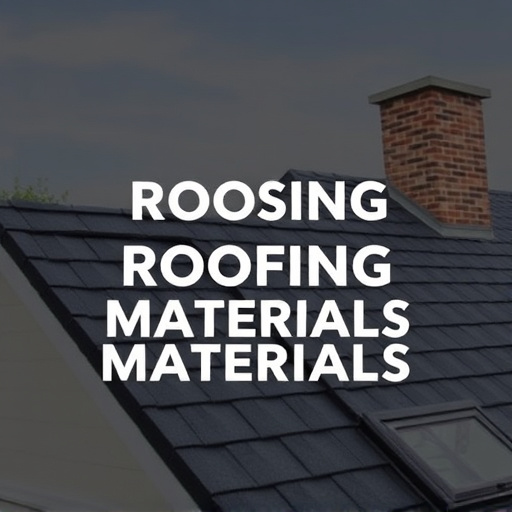
When choosing roofing materials, durability should be at the forefront of your mind. Insulated roofing offers superior longevity compared to traditional options. The components used in modern insulated roofs are designed to resist extreme weather conditions, from heavy storms to scorching sun, ensuring they maintain their structural integrity for years. Unlike asphalt shingles that have an average lifespan of 20-30 years, well-maintained insulated roofs can last up to five times longer. This extended durability translates to significant savings on replacement costs and reduces the environmental impact by minimizing waste from frequent roof replacements.
Moreover, considering eco-friendly roofing alternatives like insulated options also supports sustainability efforts. Traditional materials often require extensive manufacturing processes that contribute to carbon footprints. Insulated roofs, however, offer a more resistive solution with materials made from recycled content or renewable resources. Additionally, the energy-efficient properties of insulated roofing can lead to reduced greenhouse gas emissions and lower utility bills for homeowners, making it an excellent choice for those seeking both durability and environmental responsibility when selecting roofing materials.
Reducing Noise Pollution: Peaceful Spaces Above
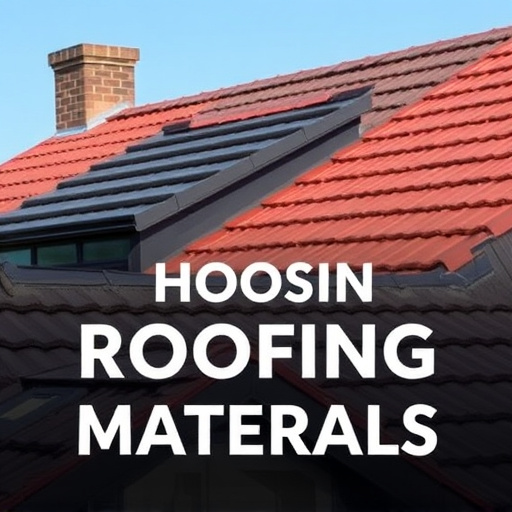
Insulated roofing offers a quiet haven in an otherwise noisy world. By reducing sound transmission between spaces, it creates peaceful retreats both indoors and out. This is particularly beneficial for urban dwellers where noise pollution is a persistent issue. Imagine enjoying a serene atmosphere in your home, even as city life buzzes around you. Choosing roofing materials that incorporate insulation can significantly mitigate noise levels, transforming rooftops into tranquil spaces.
When considering roofing options, homeowners can explore modern metal roofing designs or traditional asphalt shingles, both of which can be enhanced with insulating properties. In fact, fire-resistant roofing systems often come equipped with soundproofing features as well. These innovative solutions not only add a layer of protection but also contribute to a more comfortable and peaceful living environment, making your space truly your own oasis.
Fire Safety Features: The Role of Insulation
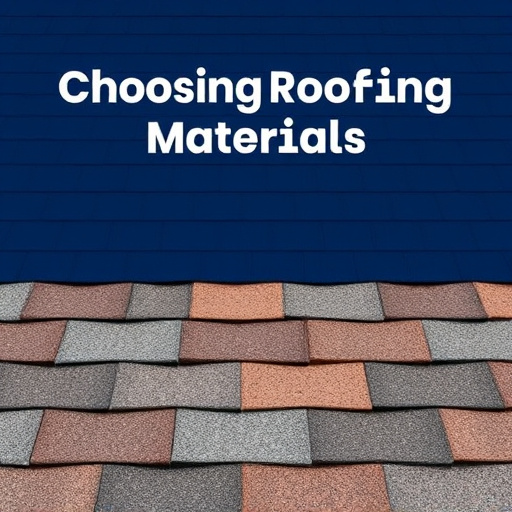
Insulation plays a pivotal role in enhancing fire safety features when selecting roofing materials. In the event of a blaze, insulated roofs act as a protective barrier, slowing down the spread of fire and heat, thereby providing crucial time for residents to evacuate safely. This is especially important for flat roof materials comparison, where proper insulation can make all the difference in fire resistance.
Choosing between various durable roofing options should consider fire-resistant roofing systems that incorporate high-quality insulation. Such systems not only offer enhanced safety but also contribute to energy efficiency by regulating indoor temperatures. Among the best durable roofing choices, fire-resistant materials stand out for their ability to create a robust and secure roofline, offering peace of mind and protection against potential hazards.
Green Building: Eco-Friendly Benefits of Insulated Roofs
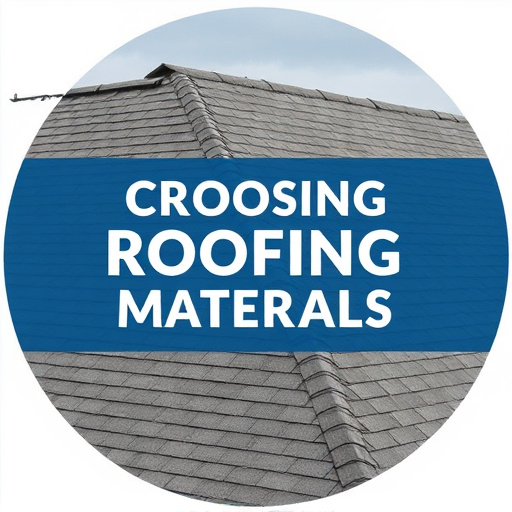
In today’s world, where environmental consciousness is on the rise, green building practices have become a popular choice for eco-conscious individuals and businesses alike. When it comes to choosing roofing materials, insulated roofs stand out as a sustainable option with numerous benefits. One of the key advantages is their energy efficiency—insulated roofs help regulate indoor temperatures, reducing the need for excessive heating or cooling. This results in lower energy consumption and associated costs.
Furthermore, these roofs contribute to a building’s overall environmental footprint by offering a more durable and longer-lasting solution than traditional asphalt shingles. They are highly resistant to extreme weather conditions, from intense heat to freezing cold, making them a reliable choice for various climates. The eco-friendly aspect is enhanced by the fact that insulated roofing materials can be made from recycled content, reducing waste and promoting a circular economy. This green building approach not only benefits the environment but also provides long-term savings and increased comfort for building occupants.
Improved Indoor Air Quality: Breathable and Healthy
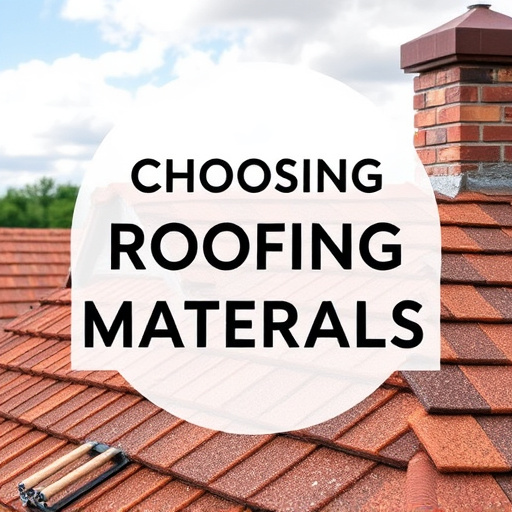
When it comes to choosing roofing materials, opting for insulated options can significantly enhance indoor air quality. Unlike traditional roofs that may trap humidity and pollutants, insulated roofing systems are designed to be breathable. This allows moisture to escape easily, preventing the buildup of mold and mildew—common issues in environments with poor ventilation. By promoting a healthier living space, these materials offer more than just energy efficiency; they contribute to better overall indoor air quality, ensuring a comfortable and safe environment for residents.
This focus on breathability is particularly important when considering the long-lasting roof material choices available today. Fire-resistant roofing systems, for instance, not only protect homes from external threats but also reduce the risk of internal pollution. By choosing insulated options, homeowners can enjoy the benefits of a durable, reliable roof and improved indoor air quality, eliminating the need for frequent repairs or replacements due to damage caused by moisture or fire.
Ease of Maintenance: Low-Maintenance Roofing Solutions
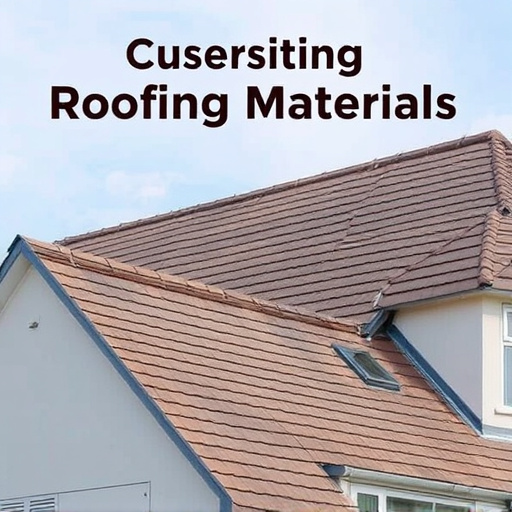
When it comes to choosing roofing materials, ease of maintenance is a significant consideration for homeowners. Low-maintenance roofing solutions are increasingly popular due to their ability to stand up to harsh weather conditions and reduce the need for frequent repairs or replacements. Insulated roofs, in particular, offer this advantage by providing an extra layer of protection against elements like wind, rain, and snow.
This type of roofing is not only about convenience; it also translates to long-term savings. Fire-resistant roofing systems, for instance, are a best durable roofing option that can significantly enhance the safety of your home, preventing the rapid spread of flames. Additionally, with proper insulation, your house can maintain optimal indoor temperatures year-round, reducing energy bills and ensuring comfort. Choosing the right roofing materials that align with your house style-appropriate roofing options will not only increase the curb appeal but also provide peace of mind for years to come.
Increased Home Value: Investing in Insulated Roofing
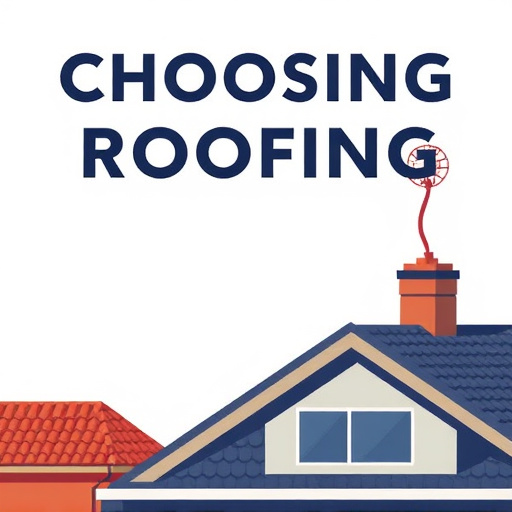
Investing in insulated roofing is one of the smartest decisions homeowners can make when it comes to enhancing their property’s value. In today’s market, where energy efficiency and sustainability are at the forefront of buyer preferences, this upgrade can significantly boost your home’s appeal. Insulated roofs not only provide excellent thermal control but also contribute to a more comfortable indoor environment throughout the year. This benefit is especially noticeable in extreme weather conditions, whether it’s keeping heat in during cold winters or reflecting intense sunlight during hot summers.
When choosing roofing materials, consider the long-term advantages of insulated options. For instance, hybrid roofing systems that combine traditional metals roofings with insulation offer exceptional performance based on climate variations. Reflective roofing for heat reduction is another innovative approach that can lower energy costs and make your home more eco-friendly. The right roofing solution not only adds years to your property’s lifespan but also increases its value, ensuring a sound investment for any homeowner.
Choosing Right: Factors to Consider for Your Roof's Insulation
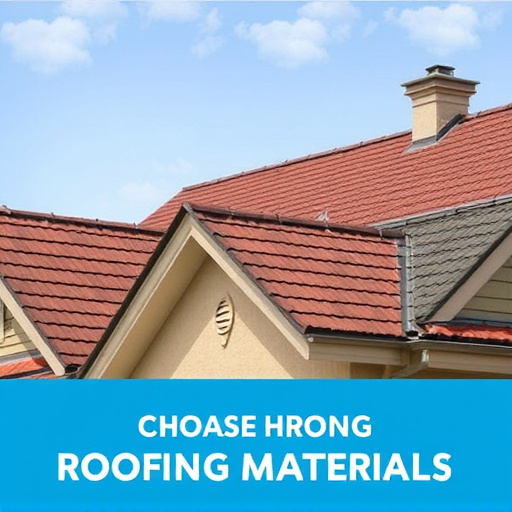
When considering insulation for your roof, several factors come into play when choosing the right roofing materials. It’s a crucial step in enhancing your home’s energy efficiency and overall structural integrity. Firstly, assess your climate and weather patterns. Different regions demand varying levels of insulation to withstand heat or cold extremes. For instance, if you reside in an area with mild winters and hot summers, light-colored reflective roofs might be ideal for reflecting sunlight and keeping the interior cool.
Another critical aspect is the type of roofing system you have or plan to install. Traditional red clay tile roofs, for example, offer excellent durability but may not be as energy-efficient as modern alternatives. Energy-efficient roofing solutions like metal roofing or high-performance shingles can significantly reduce heating and cooling costs. Slate roofing, known for its longevity, also provides superior insulation, but it comes at a higher upfront cost compared to other options. Seeking professional roofing estimate tips can help you weigh these factors and make an informed decision that aligns with your budget and eco-friendly goals.
When considering the best roofing materials, insulated roofs offer a comprehensive package of benefits. From energy efficiency and weather protection to durability, reduced noise levels, fire safety enhancements, green building advantages, improved indoor air quality, low maintenance requirements, and increased property value, insulation is an excellent investment for any homeowner. By carefully weighing factors like climate, budget, and desired aesthetics, you can choose the right insulated roofing solution that meets your unique needs, ensuring a comfortable, safe, and sustainable living environment for years to come.
